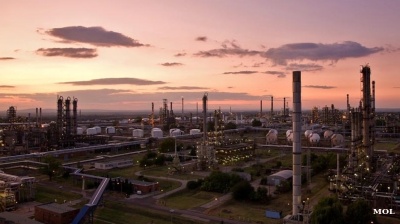The discovery of two entirely new species along the Vjosa river in Albania has given new impetus to a campaign by environmental groups to block construction of two major hydropower plants.
The Vjosa, which is considered to be the last major “wild river” in Europe, is earmarked for development as Albania, along with other countries in the Western Balkans, seeks to exploit its hydropower potential. This has led to an explosion in plans for new dams and hydropower plants in the region, with the Save the Blue Heart of Europe campaign estimating that no less than 2,700 are currently planned.
On the Vjosa, power plants are planned at Poçem and Kalivaç. In May, NGOs and local residents won a case against construction of the Poçem hydropower plant, resulting in its licence being revoked, but the government has since appealed against the decision.
Now, what scientists believe are two entirely new species — a fish and a stonefly — have been discovered along the river, says a statement from NGO Riverwatch, although comparative tests still have to be conducted to be certain that it is indeed a new fish species. The stonefly will be named after its host, Isoperla vjosae, while the fish is yet to be named. The discoveries were made by an international research team comprising 25 scientists from Albania, Austria, Germany and Slovenia.
Another 40 species have been recorded for the first time in Albania, the NGO also said, but it claims that “most of these species are likely to go extinct in consequence of the radically changed conditions” if the river is dammed.
Scientists also argued that the high level of sediment would pose a major problem for the planned dams, eventually forcing the Poçem HPP to halt operations entirely. They have appealed to the Albanian government not to issue licences for the two HPPs until a comprehensive three-year research programme is carried out.
“Our assessments confirm an impending lose-lose situation if the hydropower plant Poçem is constructed. In addition to species extinction, energy generation will be reduced drastically since the massive sediment transport of the Vjosa will fill up the projected reservoir with gravel and sand within only 25-30 years,” Christoph Hauer of the University of Natural Resources and Life Sciences (BOKU) in Vienna, one of the researchers involved in the project, said in a statement.
The region has a history of hydropower use, although most governments and private investors have lacked the funds to fully exploit the potential. Albania generates all of its electricity from hydro, which accounts for more than a third of power generation in Bosnia & Herzegovina, Croatia and Montenegro. A combination of hydropower and coal is frequently used in countries across the region.
Governments hope that developing hydropower resources will help ensure energy security and reduce dependence on imports. However, the sheer number of hydropower installations being considered has raised concerns that this growth may not have been well planned or coordinated. Another issue coming up for hydropower investors is that global climates are changing, a particular issue in the hydropower sector where the average life of a plant is three decades or more.
News

Serbian president calls fire, shooting outside parliament a terrorist attack
The attacker, a retired employee of the former State Security Service, opened fire on a tent settlement of pro-government supporters.

Bolivia's new leader must rebuild a shattered economy
Bolivia enters a new political and economic phase as centrist Rodrigo Paz prepares to take office on November 8, inheriting one of the country’s most acute crises since the hyperinflation of the 1980s.

Hungarian foreign minister says "many actors" worked to prevent Budapest summit
The White House has suspended plans for a meeting between US President Donald Trump and Russian President Vladimir Putin in Budapest.

Central Asian states registering impressive trade gains
Success despite the lack of access to a seaport.

 Wolfram Graf.jpg)


